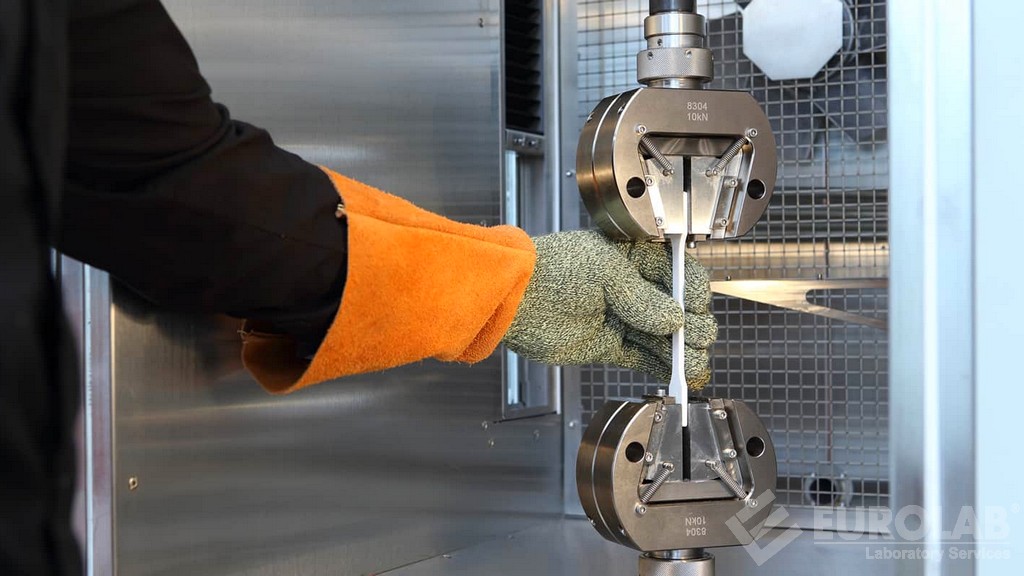Corrosion Inhibitor Performance Test
The Corrosion Inhibitor Performance Test is a critical procedure in the Oil & Gas sector aimed at assessing the effectiveness of corrosion inhibitors used in production chemicals and additives. This test ensures that these inhibitors meet stringent standards, protecting equipment from costly corrosion damage and enhancing operational safety.
Corrosion inhibitors play a vital role in maintaining pipeline integrity and optimizing chemical performance within oil and gas operations. By testing the inhibitors under controlled conditions, we can accurately determine their ability to prevent metal deterioration caused by exposure to corrosive environments such as water, hydrocarbons, and chemicals used during production.
The test involves exposing steel specimens or other relevant materials to an environment that simulates actual field conditions. This includes high humidity levels, specific temperature ranges, and the presence of potential corrosives like carbon dioxide (CO2), chloride ions, and oxygen. The performance of the inhibitor is then evaluated by measuring any reduction in corrosion rates on these exposed materials.
A successful test demonstrates not only adherence to industry standards but also compliance with regulatory requirements imposed by bodies such as the American Petroleum Institute (API). Understanding the intricacies involved helps quality managers make informed decisions about which inhibitors best suit their operational needs, thereby reducing maintenance costs and extending asset life.
For R&D engineers working on developing new formulations for production chemicals, this test serves as an essential tool in validating product performance early in the development cycle. It provides valuable insights into how various components interact with each other under real-world conditions before full-scale implementation.
The testing process typically follows established protocols outlined by relevant international standards like ISO 12944 and ASTM G58, ensuring consistency across different labs worldwide. Compliance officers responsible for ensuring regulatory adherence will find this test particularly useful in meeting local and international regulations related to chemical usage within the oil & gas industry.
By investing time and resources into thorough testing during early stages of product development or routine quality assurance checks, companies can significantly reduce risks associated with improper inhibitor selection leading to premature equipment failure. This proactive approach ensures long-term sustainability by minimizing downtime, increasing productivity, and maintaining environmental responsibility through reduced waste generation.
Applied Standards
| Standard | Description |
|---|---|
| ISO 12944 | This standard provides guidelines for the protection of steel structures exposed to atmospheric corrosion. It includes recommendations on the selection, application, and performance evaluation of protective coatings. |
| ASTM G58 | The American Society for Testing Materials (ASTM) G58 describes procedures for laboratory determination of resistance of metallic materials to atmospheric corrosion. This standard is widely used in industries where long-term exposure tests are necessary. |
| Standard | Description |
|---|---|
| API Spec Q1 | The American Petroleum Institute’s specification for quality assurance and quality control in the oil & gas industry. This standard ensures that all materials used meet strict criteria regarding reliability, performance, and safety. |
| IEC 60278 | This International Electrotechnical Commission (IEC) document specifies methods for measuring corrosion rates using exposed weight loss techniques. While primarily focused on electrical equipment, its principles can be adapted to other metallic materials. |
Benefits
The Corrosion Inhibitor Performance Test offers numerous benefits to organizations involved in oil & gas production. One of the most significant advantages is enhanced equipment longevity, which translates directly into lower maintenance costs and increased operational efficiency.
- Increased Equipment Lifespan: By identifying potential inhibitors early on, companies can select those that provide optimal protection against corrosion without compromising performance or adding unnecessary complexity to existing processes.
- Compliance Assurance: Ensures compliance with all relevant regulations and industry standards. This reduces the risk of legal issues arising from non-compliant chemical usage.
- Eco-Friendly Solutions: Selecting effective inhibitors helps minimize waste generation by ensuring that only necessary amounts are used, thus promoting sustainable practices within the organization.
- Improved Safety Standards: Effective corrosion inhibition reduces risks associated with potential leaks or failures in critical infrastructure like pipelines and storage tanks.
In addition to these tangible benefits, regular testing also fosters continuous improvement initiatives aimed at staying ahead of technological advancements. This proactive approach ensures that companies remain competitive within the ever-evolving landscape of oil & gas production.
Why Choose This Test
- Comprehensive Evaluation: The test evaluates not just the chemical properties but also how well the inhibitor performs under realistic field conditions, providing a holistic assessment.
- Standardized Procedures: Adherence to internationally recognized standards ensures consistent results across different labs and eliminates variability due to experimental errors.
- Rapid Results: Once samples are prepared and placed in the appropriate environment, data can be collected relatively quickly, allowing for faster decision-making processes.
- Cost-Effective: Early detection of ineffective inhibitors saves money by preventing costly rework or replacement later down the line.
- Customizable: The test can be tailored to specific operational needs, ensuring that it addresses unique challenges faced by individual companies.
The combination of these factors makes this test an invaluable asset for any organization looking to improve its corrosion protection strategies in oil & gas production. It provides a robust foundation upon which further improvements and innovations can be built, ultimately leading to more efficient and safer operations.





